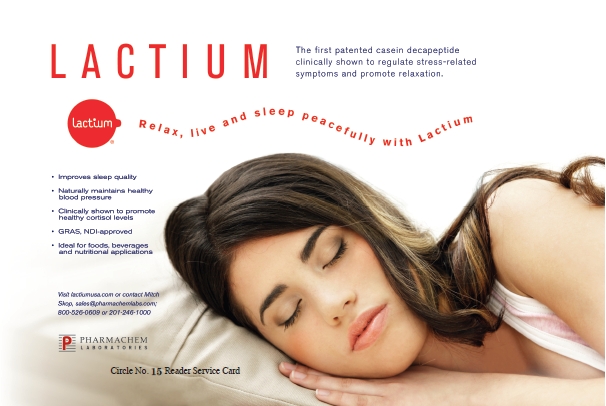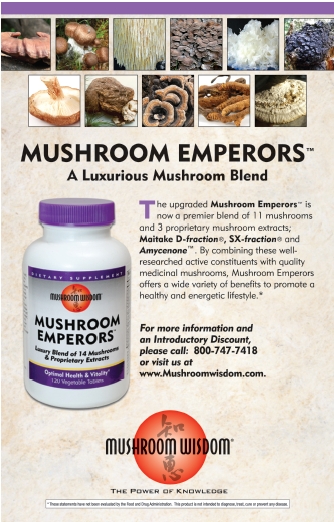Whether it’s work, family or another worry that goes through our brains in the wee hours of the morning, sometimes we need a little dust from the Sandman. Some may shy away from the groggy, drone-like side effects that major sleep medicines cause, hoping to find a more natural option. Luckily, there are many marketable supplements out there that can give your customers a good night’s sleep with very little complications.
Facts Behind the Zzzz’s
We often forget sleep is a delicate and easily disrupted state. Small things like light outside and the gradual process of aging could significantly affect the amount of sleep a person can get in a night (1). For those with more serious conditions and health issues, such as seasonal affect disorder (SAD) or even schizophrenia, circadian rhythms can be severely disrupted (2). Lapses of sleep can affect anyone at any time, and so here are a few aids that could put your head on a pillow and keep it there all night.
Nighttime Companions
Melatonin. Perhaps one of the most popular and longest known sleep-aids, melatonin is a hormone produced by the pineal gland (1). The body controls how much melatonin it makes, giving each person his or her own internal clock for sleeping and waking. Light travels from the retina to the hypothalamus, where the “supra-chiasmatic nucleus” (SCN) signals the pineal gland to make more or less melatonin, depending on the amount of light to which the eye is exposed (4). The initial wake-up period sets off a series of “regulated patterns” such as body temperature and other hormones (3). When this delicate process is interrupted, supplemental melatonin can help. In most cases, it is not recommended that children, pregnant women or women who are trying to become pregnant take this supplement, as it interferes with the menstrual cycle (3).
In 2009, scientists at the Sleep Research Laboratory at the University Health Network in Toronto, ON, Canada conducted a study that involved patients with Delayed Sleep Phase Syndrome (DSPS). Results showed that 5 mg/d of melatonin in a four-week period helped decrease depression and increase sleep continuity. Despite these findings, one should always consult a doctor before taking melatonin to help with depression and other hormonal imbalances.
Tryptophan and 5-HTP. If you’ve ever experienced a “food coma” after a big Thanksgiving Day meal, you may have heard tryptophan was the culprit. Contrary to this, the amount of tryptophan in turkey alone (as well as other foods including chicken, milk, potatoes and pumpkins) does not necessarily affect our sleep cycle. There’s more to the wives’ tale about falling asleep to football after a holiday feast.
Tryptophan is an amino acid that is transformed into the chemical 5-hydroxytryptophan (5-HTP), which then produces serotonin. Unlike melatonin, the body does not naturally produce tryptophan, which is partially why we need protein and whole grains in our diets (6). 5-HTP, through serotonin, controls our moods and behaviors, both of which have a potential to affect our sleep. Apart from tryptophan found in foods, a supplement form of this chemical comes from an African plant called Griffonia simplicifoli; it has been found to help with some special cases of depression, insomnia and migraines (7).

 Magnesium. This vital mineral is important in keeping your physical and mental health intact. Magnesium is found throughout cells, often in tissues or organs, and within the bones (8). In some cases, magnesium deficiency can cause nausea, weakness, cramping and personality changes (8). This mineral helps keep the body running smoothly and aids in the regulation of moods, so a lack of it in your diet could be adding trouble to your sleep schedule. While some foods like green vegetables and whole grains naturally have magnesium, few people eat enough of these foods to get the magnesium they need and require supplemental help. The trick is, which supplement is the most beneficial?
Magnesium. This vital mineral is important in keeping your physical and mental health intact. Magnesium is found throughout cells, often in tissues or organs, and within the bones (8). In some cases, magnesium deficiency can cause nausea, weakness, cramping and personality changes (8). This mineral helps keep the body running smoothly and aids in the regulation of moods, so a lack of it in your diet could be adding trouble to your sleep schedule. While some foods like green vegetables and whole grains naturally have magnesium, few people eat enough of these foods to get the magnesium they need and require supplemental help. The trick is, which supplement is the most beneficial?
A lot of what supplements can do for your body depends on bioavailability and absorption (8). Various forms of magnesium include magnesium oxide, magnesium sulfate, magnesium carbonate and magnesium citrate. In a chart provided by Thompson Reuter MICROMEDEX (“USP DI Drug Information for the Healthcare Professional”), magnesium oxide was found to have 60% of elemental magnesium, the most out of the other compounds (9). Despite this fact, only 4% of the original magnesium in this particular form can be absorbed. Other options like chelated magnesium and magnesium citrate are much more water soluble (8). Depending on your clients’ need for supplemental magnesium, different types of these formulas exist and can be consumed with recommendation from a healthcare provider.
In December 2010, the Grand Forks Human Nu trition Research Center in Grand Forks, ND held a study that took 100 people (78 female, 22 male) ages 51–58 and tested their bad sleep qualities on a Pittsburgh Sleep Quality Index (PSQI), all of whom had a score of five or higher (10). Because it was placebo-controlled, one group received 320 mg/d of magnesium citrate for seven weeks while the other group continued a regular diet. Some 58% of the patients did not fulfill their daily requirements of magnesium prior to this experiment, and scientists found that their PSQI scores improved (10). Further study is needed to confirm the relationship of magnesium and a good night’s sleep, but the results were promising.
trition Research Center in Grand Forks, ND held a study that took 100 people (78 female, 22 male) ages 51–58 and tested their bad sleep qualities on a Pittsburgh Sleep Quality Index (PSQI), all of whom had a score of five or higher (10). Because it was placebo-controlled, one group received 320 mg/d of magnesium citrate for seven weeks while the other group continued a regular diet. Some 58% of the patients did not fulfill their daily requirements of magnesium prior to this experiment, and scientists found that their PSQI scores improved (10). Further study is needed to confirm the relationship of magnesium and a good night’s sleep, but the results were promising.
Herbal aids. What helps one reduce anxiety may also aid sleep, including some “ohm” inducing herbs.
For instance, chamomile, often found in teas, is available in capsule form. In a study concerning General Anxiety Disorder (GAD), the supplement proved to be very effective (11). In a trial printed in the Journal of Clinical Psychopharmacology, researchers from University of Pennsylvania administered a placebo-controlled study. They gave 220 mg of chamomile capsules to participants who were previously diagnosed with GAD. As a guide, they used the Hamilton Anxiety Rating (HAM-A) to see the changes in the amount of anxiety the patients were experiencing after the initial and increased dosage for eight weeks (11). The results showed an overall decrease in HAM-A scores. Those who suffer from GAD can also suffer from insomnia, and thus chamomile has been shown to have substantial help for sleeplessness.
Lavender has been around for a long time, used in soaps and fragrances as an anxiety-reducing agent. Doctors and other health specialists recommend two to four drops of lavender extract in boiling water for respiratory purposes, and one to four tablespoons for external skin use (12). Since lavender can be toxic if taken orally (with the exception of some teas), there are many products designed to give you the same soothing effects as any sleep-aid supplement could give. In the Princess Alice Hospice in Esher, Surrey, UK, a randomized controlled experiment was conducted to see the effects of lavender on cancer patients in terms of the insomnia and depression they might be experiencing. The study involved 42 patients who were massaged with lavender-based oils, and while there were no long-term benefits for these patients, their sleep scores improved (13).
Kava is native to the South Pacific islands, and has been used as a sleep-aid for centuries (14). Parts of its root and rhizome can be consumed by the body, but the herb was involved in a controversy in 2002 when the U.S. Food and Drug Administration issued a consumer advisory warning Americans that the herb could cause liver damage.
Controversy still exists in other countries like Germany and Canada, who have banned the sale of kava products in 2002 when a series of cases of liver damage were reported and connected with the supplement (15). Research in 2003 found that the active compounds in kava called kavalactones were extracted differently in the Western hemisphere than in its indigeous regions; here, the herbal supplement is made by removing these kavalactones with ethanol or acetone, whereas Aboriginal culture uses water (16). More research is needed to confirm the reason why liver damage occurs in association with the herb, leading to possibly safer versions.
Nonetheless, many believe in kava’s ability to benefit anxiety management, but talk to a doctor before considering this alternative sleep-aid.
Last, valerian root may help individuals manage insomnia and anxiety. In fact, many report a better quality of sleep after taking this supplement without any grogginess.
Milk protein. Remember mom’s advice that a glass of milk drunk before bed time would help you fall asleep? This old trick is still relevant now, thanks to a natural ingredient that is included in many supplements. Over 12 years ago, scientists isolated a peptide in milk protein hydrosylate when they recognized milk’s calming effects on a newborn child (17). The discovery lead to the creation of a branded ingredient (Lactium), taking the part of milk that makes one drowsy and making it available in forms such as softgels or capsules (18). Since there are no known side effects, a daily dose of 150 mg of the ingredient can be taken safely (17).
Waking Up to a New Perspective
Whether you’re nine or 99 years old, restlessness can set in at the most inopportune times. These sleep-aids have been proven in multiple studies to calm even the most frazzled of nerves. Taking care of yourself while you sleep is just as important as the multivitamin you might take in the morning, as everyone wants sweet dreams. WF
References
1. WebMD, “Melatonin for Sleep: Hormone and Supplement Effects on Sleep,” www.webmd.com/sleep-disorders/tc/melatonin-overview, accessed Nov. 30, 2011.
2. U.S. National Library of Medicine, “Melatonin,” www.nlm.nih.gov/medlineplus/druginfo/natural/940.html, last updated Nov. 07, 2011, accessed Nov. 30, 2011.
3. University of Maryland Medical Center, “Melatonin,” www.umm.edu/altmed/articles/melatonin-000315.htm, accessed Nov. 30, 2011.
4. S. Rahman, et al., “Antidepressant Action of Melatonin in the Treatment of Delayed Sleep Phase Syndrome,” Sleep Med., Dec. 29, 2009; [Epub ahead of print] 11(2), 131–136 (2010), www.ncbi.nlm.nih.gov/pubmed/20044310, accessed Nov. 30, 2011.
5. National Sleep Foundation, “Melatonin and Sleep,” www.sleepfoundation.org/article/sleep-topics/melatonin-and-sleep, accessed Nov. 30, 2011.
6. U.S. National Library of Medicine, “Tryptophan,” www.nlm.nih.gov/medlineplus/ency/article/002332.ht, accessed Nov. 30, 2011.
7. University of Maryland Medical Center, “5-Hydroxytryptophan (5-HTP),” www.umm.edu/altmed/articles/5-hydroxytryptophan-000283.htm, accessed Nov. 30, 2011.
8. C. Dean, “Types of Magnesium: Oral Supplements,” The Magnesium Miracle. (Random House, Inc. New York, NY, 2007).
9. National Institutes of Health, Office of Dietary Supplements, “Magnesium,” http://ods.od.nih.gov/factsheets/magnesium, accessed Nov. 30, 2011.
10. F. Nielsen, et al. “Magnesium Supplementation Improves Indicators of Low Magnesium Status and Inflammatory Stress in Adults Older Than 51 Years With Poor Quality Sleep,” Magnes. Res. 23 (4), 158–168 (2010), accessed Nov. 30, 2011.
11. J. Amsterdam, et al. “A Randomized, Double-Blind, Placebo-Controlled Trial Of Oral Matricaria Recutita (Chamomile) Extract Therapy For Generalized Anxiety Disorder,” J. Clin. Psychopharmacol. 29 (4), 378–382 (2009), accessed on Nov. 30, 2011.
12. University of Maryland Medical Center, “Lavender,” www.umm.edu/altmed/articles/lavender-000260.htm, accessed Nov. 30, 2011.
13. K. Sodem, et al., “A Randomized Controlled Trial of Aromatherapy Massage in a Hospice Setting,” Palliat. Med. 18, 87–92 (2004), accessed Nov. 30, 2011.
14. National Center for Complementary and Alternative Medicine, “Kava,” http://nccam.nih.gov/health/kava/, accessed Nov. 30, 2011.
15. U.S. Food and Drug Administration. “Consumer Advisory: Kava-Containing Dietary Supplements May be Associated With Severe Liver Injury,” www.fda.gov/Food/ResourcesForYou/Consumers/ucm085482.htm, Issued March 25, 2002, accessed Nov. 30, 2011.
16. B. Currie and A. Clough, “Kava Hepatotoxicity with Western Herbal Products: Does it Occur With Traditional Kava Use? Differences in Kava Extraction Methods May Affect Hepatotoxicity,” Med. J. Aust., 178, 421-422 (2003) accessed Nov. 30, 2011.
17. Lactium USA, “What Is Lactium?” http://lactiumusa.com/what-is-lactium.html, accessed Dec. 2, 2011.
18. Ingredia Nutritional, “How to Use Lactium?” www.ingredia-nutritional.com/lactiumuk/menu-haut/how-use-lactium.html, accessed Dec. 2, 2011.
Published in WholeFoods Magazine, January 2012









